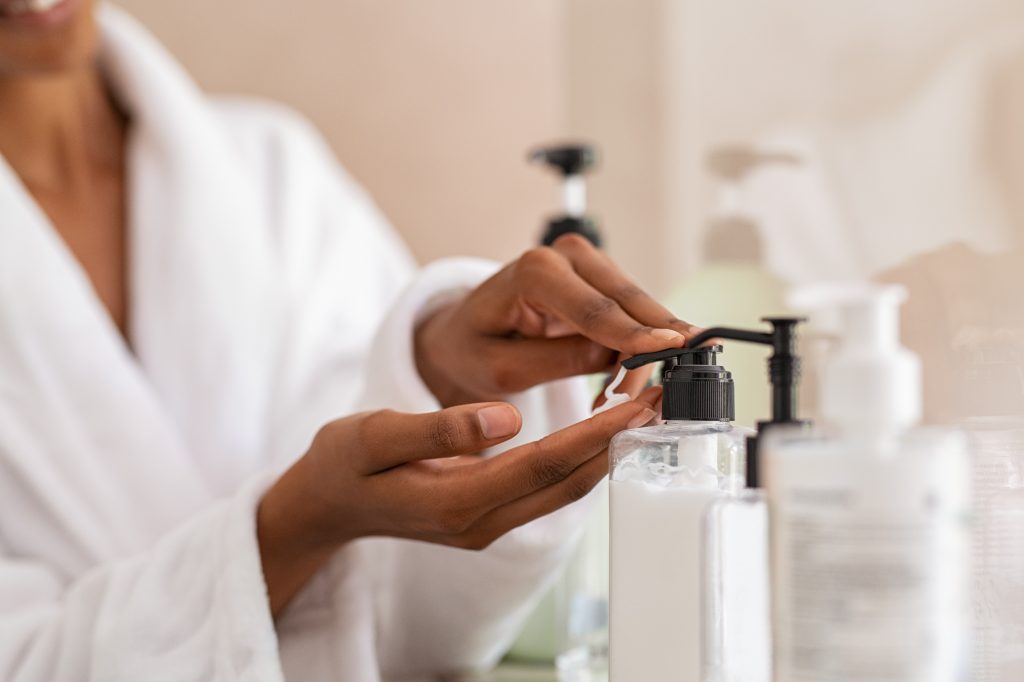
Sensitive skin can be a real challenge for many people. That’s because skin that is classified as sensitive tends to react more easily to various environmental factors and skin care products. If you have sensitive skin, you’re not alone. On any given day, regardless of race or ethnicity, a considerable portion of the world’s population experiences challenges associated with having sensitive skin. This includes skin redness, irritation, itchiness, or dryness.
Living with sensitive skin doesn’t have to be a daily struggle, though. With the right knowledge and a customized skin care routine, you can manage and improve your skin’s condition effectively. Want to learn more? Keep reading to gain a deeper understanding on how to properly care for sensitive skin while keeping it healthy and happy.
Expert Tips from the Team at Florida Dermatology and Skin Cancer Centers on Managing Sensitive Skin
Determine Your Skin Type
Before creating a skin care routine, it’s important to understand your skin type, including whether you have truly sensitive skin or if it’s another condition like eczema or rosacea. A dermatologist can accurately diagnose your skin type and any underlying skin conditions, allowing them to provide tailored advice and treatments. We recommend that you see a dermatologist annually for a skin check. If you have any flareups at this time, your dermatologist can help you with the next steps.
Use Gentle and Fragrance-Free Cleansers
The first step in caring for sensitive skin is to cleanse it properly. Be sure to choose gentle, non-irritating, and fragrance-free cleansers. Look for products labeled as hypoallergenic, non-comedogenic, and soap-free. Cleansing your face twice a day, morning, and night, is usually sufficient for most people. Avoid using hot water as it can strip your skin of its essential oils, which can ultimately lead to dryness and irritation.
Moisturize Regularly
Moisturizing is essential for all skin types, but it is especially critical for sensitive skin. A good moisturizer helps maintain the skin’s natural barrier function, keeping irritants out and hydration in. Choose a moisturizer specifically formulated for sensitive skin and check the ingredient list for potential irritants like fragrances, dyes, and alcohol. Apply moisturizer after cleansing while your skin is still slightly damp to lock in moisture effectively.
Protect Yourself from the Sun
Sensitive skin is particularly susceptible to sun damage, which can exacerbate redness and irritation. Always wear a broad-spectrum sunscreen with an SPF of at least 30, even on cloudy days. Look for physical sunscreens containing zinc oxide or titanium dioxide, as they are less likely to cause irritation. Remember to reapply sunscreen every two hours when outdoors, and directly after swimming or sweating.
Patch Test New Products
When trying out new skin care products or cosmetics, always perform a patch test on a small area of skin first. This step is especially crucial for individuals with sensitive skin as it helps to identify potential triggers before applying the product to your entire face. Apply a small amount to your inner forearm or behind your ear and wait 24 hours to check for any adverse reactions. If all goes well, you should be able to continue to use.
Avoid Harsh Exfoliants
Exfoliating can be beneficial for removing dead skin cells and promoting skin renewal, but for sensitive skin, it’s essential to avoid harsh exfoliants that can cause further irritation. Opt for gentle exfoliants with round beads, or enzymes. Limit exfoliation to once or twice a week to prevent over-exfoliation.
Choose Makeup Carefully
When selecting makeup products, choose those labeled as suitable for sensitive skin and avoid anything containing potential irritants like fragrances, preservatives, and synthetic dyes. Mineral makeup, which often contains fewer allergens, is a great option for individuals with sensitive skin. Always remove makeup thoroughly before bedtime to allow your skin to breathe and regenerate overnight.
Watch Your Diet
A well-balanced diet plays a significant role in maintaining healthy skin. Certain foods can trigger skin reactions in people who have sensitive skin, so it’s essential to pay attention to your diet. Common culprits include spicy foods, alcohol, caffeine, processed foods, and excess sugar. Try to follow a healthy lifestyle that includes eating a diet rich in antioxidants, vitamins, and omega-3 fatty acids to support skin health.
Manage Stress
Stress can intensify any skin condition, including sensitivity. Practice stress-reducing techniques such as meditation, yoga, or deep breathing exercises. Adequate sleep is also essential for skin repair and overall well-being. By managing your stress and keeping your emotional health a top priority, your sensitive skin will naturally improve.
Say No to Fragrances in Your Laundry Detergent
Fragrances are a common cause of allergic contact dermatitis, a skin condition characterized by redness, itching, and inflammation. For this reason, it is recommended that people with sensitive skin use fragrance-free or hypoallergenic laundry detergents and avoid using heavily perfumed fabric softeners. Even the slightest adjustment can make a difference!
Key Takeaways
Caring for sensitive skin requires a tailored approach and a commitment to using gentle, non-irritating products. By following the above expert tips from the team at Florida Dermatology and Skin Cancer Centers, you can effectively manage your sensitive skin and achieve a healthier, more radiant complexion. Remember that consulting a dermatologist is crucial to getting personalized advice and treatment options specific to your skin’s needs. With the right care, you can keep your sensitive skin calm, happy, and beautiful.
Contact FLDSCC for All Your Skin Care Needs
Florida Dermatology and Skin Cancer Centers provides a full spectrum of dermatology and skin care services, and its team of physicians, APRNs, and PAs are experts in diagnosing and treating skin cancers with the latest technological options. Medical Director, Dr. K. Wade Foster, is fellowship-trained in Mohs surgery, the most effective technique for most types of skin cancers, with minimal scarring or risk.
For more information about the services that Florida Dermatology and Skin Cancer Centers provides, or to make an appointment for a skin exam, visit www.fldscc.com or contact us at (855) FLD-SKIN.


